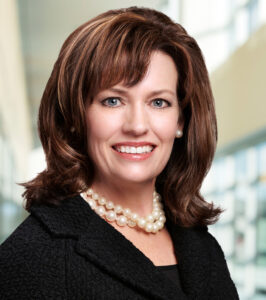Writer: Max Crampton-Thomas
 2 min read September 2021 — As difficult as the pandemic has been during the last year, some of the lessons learned have the potential to have positive long-term effects on the business community, especially in the Minnesota region. In her interview with Invest: Kate Reschenberg, executive director of the Economic Club of Minnesota, noted that some of these positive changes have been in key areas like diversity and inclusion.
2 min read September 2021 — As difficult as the pandemic has been during the last year, some of the lessons learned have the potential to have positive long-term effects on the business community, especially in the Minnesota region. In her interview with Invest: Kate Reschenberg, executive director of the Economic Club of Minnesota, noted that some of these positive changes have been in key areas like diversity and inclusion.
How has the Economic Club of Minnesota continued to grow despite last year’s challenges?
Most of our members and sponsors remained with us throughout our season, even though we moved from an in-person format to virtual events. We were very intentional about how we presented content to our members and sponsors. We created a compelling virtual experience which included moderators from CBS, Margaret Brennan from Face the Nation, and Washington correspondent, Major Garret. In addition, we connected with each attendee by delivering individual kits containing themed items, books, and useful home office items a day or two prior to each event. We communicated with our members and sponsors through social media and email, and were able to maintain good attendance.
We also offer very strong, young professional club events, some of which are more laid back and not as structured as our main monthly Economic Club events. As an example, we facilitated a virtual happy hour with Neel Kashkari, president and CEO of the federal Reserve Bank of Minneapolis, where our young professionals could interact and ask him questions directly.
Overall, in a very disconnected world, we wanted people to understand that we are here to stay, and we are providing our usual, thoughtful and engaging monthly events.
What are the long-term changes that people are talking about as the pandemic subsides?
Most of the business leaders I talk to are juggling with how to adjust to employees who are now used to working in a virtual environment, many of whom still want to, and how they fit that into their business model.
Companies are changing how they do business but, at the same time, they’re not completely throwing out the baby with the bathwater. They want to be able to maintain their identity and how their message relates to their core values. They’re making tweaks to their core values, as you’ve probably seen numerous organizations do, especially as they relate to diversity and inclusion. In that sense, companies are becoming more intentional about diversity and inclusion. It’s not just lip service. They are putting feet on the street; they’re making very intentional hires, and they’re expanding their boards to include more diverse voices. Another aspect is how companies are looking at their business and asking, “how are we serving the greater population?”
What legislation being considered at the local or national level are you following?
A lot is going on locally. Minnesota is the only divided state legislature in the country so that poses unique challenges. We keep our eyes on anything that affects business and the economy, so it is not always just free trade. We are watching developments regionally, nationally, and globally. And we pay attention not only to large enterprises but small enterprises as well.
What are some of the unique benefits to doing business in the area?
First and foremost, there are a lot of incredible educational opportunities in Minnesota that affords a well-prepared labor force. Another plus is that “Minnesota Nice” is real. Businesses are very open to new players in the market. They are competitive but they are willing to expand the pie. I also think there is a very friendly environment in terms of investment. The University of Minnesota itself has numerous programs that support startups. There’s a lot of support here for business.
What are some of the challenges the area faces in terms of doing business?
Taxes are a challenge, although Minnesota is not alone on that subject. Like other states, there is also a labor shortage. There are many opportunities for those who are seeking employment, not only hourly or temporary jobs. Companies are looking for full-time employees and many are having a hard time recruiting.
What is your near-term outlook?
We are excited to get back together. It is that human connection that people really crave right now. What the Economic Club does really well is attract business leaders to participate in thoughtful discussions on important topics affecting our state, country and world today. It’s a tremendous networking opportunity and we’re looking forward to being that in-person connection point again.
For more information, visit:
